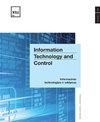Few-shot Sentiment Analysis Based on Adaptive Prompt Learning and Contrastive Learning
IF 2
4区 计算机科学
Q3 AUTOMATION & CONTROL SYSTEMS
引用次数: 0
Abstract
Traditional deep learning-based strategies for sentiment analysis rely heavily on large-scale labeled datasets for model training, but these methods become less effective when dealing with small-scale datasets. Fine-tuning large pre-trained models on small datasets is currently the most commonly adopted approach to tackle this issue. Recently, prompt-based learning has gained significant attention as a promising research area. Although prompt-based learning has the potential to address data scarcity problems by utilizing prompts to reformulate downstream tasks, the current prompt-based methods for few-shot sentiment analysis are still considered inefficient. To tackle this challenge, an adaptive prompt-based learning method is proposed, which includes two aspects. Firstly, an adaptive prompting construction strategy is proposed, which can capture the semantic information of texts by utilizing a dot-product attention structure, improving the quality of the prompt templates. Secondly, contrastive learning is applied to the implicit word vectors obtained twice during the training stage to alleviate over-fitting in few-shot learning processes. This improves the model’s generalization ability by achieving data enhancement while keeping the semantic information of input sentences unchanged. Experimental results on the ERPSTMT datasets of FewCLUE demonstrate that the proposed method have great ability to construct suitable adaptive prompts and outperforms the state-of-the-art baselines.基于自适应提示学习和对比学习的少量情感分析
基于深度学习的传统情感分析策略在很大程度上依赖于大规模标注数据集来进行模型训练,但在处理小规模数据集时,这些方法就变得不那么有效了。目前,在小型数据集上微调预先训练好的大型模型是解决这一问题最常用的方法。最近,基于提示的学习作为一个前景广阔的研究领域受到了广泛关注。虽然基于提示的学习有可能利用提示来重新制定下游任务,从而解决数据稀缺问题,但目前基于提示的少量情感分析方法仍被认为是低效的。为应对这一挑战,本文提出了一种基于提示的自适应学习方法,包括两个方面。首先,提出了一种自适应提示构建策略,它可以利用点积注意结构捕捉文本的语义信息,提高提示模板的质量。其次,在训练阶段对两次获得的隐含词向量进行对比学习,以减轻少次学习过程中的过度拟合。这样,在保持输入句子语义信息不变的情况下实现了数据增强,从而提高了模型的泛化能力。在 FewCLUE 的 ERPSTMT 数据集上的实验结果表明,所提出的方法具有很强的构建合适的自适应提示的能力,并且优于最先进的基线方法。
本文章由计算机程序翻译,如有差异,请以英文原文为准。
求助全文
约1分钟内获得全文
求助全文
来源期刊

Information Technology and Control
工程技术-计算机:人工智能
CiteScore
2.70
自引率
9.10%
发文量
36
审稿时长
12 months
期刊介绍:
Periodical journal covers a wide field of computer science and control systems related problems including:
-Software and hardware engineering;
-Management systems engineering;
-Information systems and databases;
-Embedded systems;
-Physical systems modelling and application;
-Computer networks and cloud computing;
-Data visualization;
-Human-computer interface;
-Computer graphics, visual analytics, and multimedia systems.
 求助内容:
求助内容: 应助结果提醒方式:
应助结果提醒方式:


